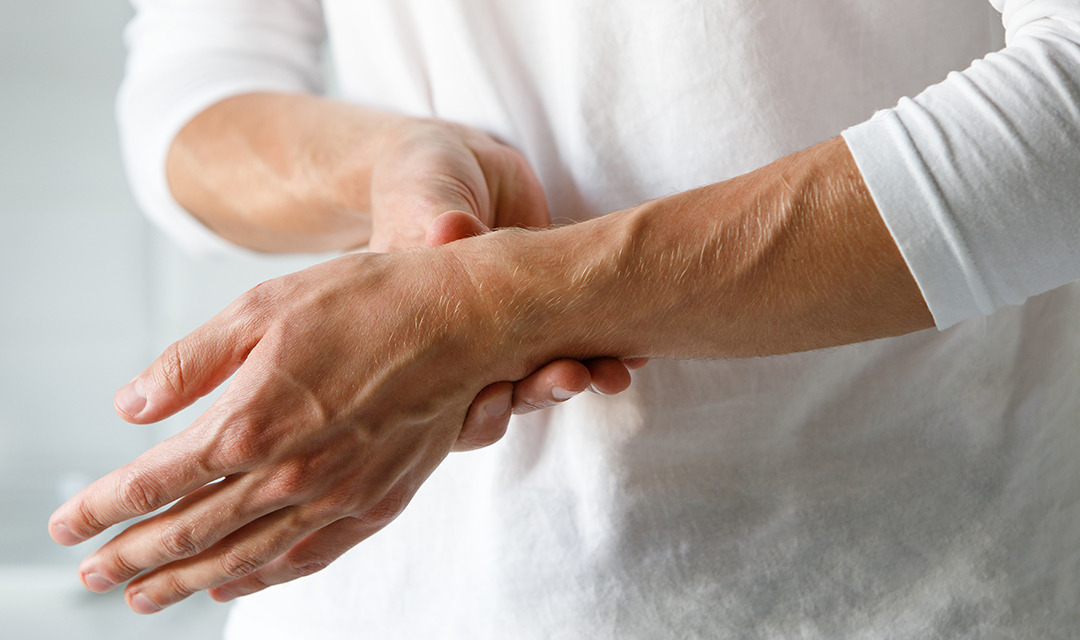Insight Orthopedics & Sports Medicine – Rheumatoid arthritis (RA) is an inflammatory condition that affects approximately 1.3 million people in the United States. Unlike the more common osteoarthritis, which is caused by wear and tear on joints, RA is an autoimmune disease that occurs when the body’s own immune system attacks the joints, causing painful swelling and bone deformity over long periods of time when left untreated. Because RA typically develops slowly and only a few symptoms may be present in the initial stages, it can be difficult to diagnose and people often do not realize they are experiencing the condition. However, with early treatment, it is possible to decrease pain, delay the development of joint damage, and prevent further complications to other parts of the body. If you are experiencing pain and inflammation in the hands, wrists, or knees, here are eight early signs it could be rheumatoid arthritis.
You Experience Swollen Joints
Swollen joints are one of the most common signs of arthritis and are generally noticeable. In RA flare ups, the linings of the joints will thicken and excess fluid will develop along the joints. Patients often notice they are no longer able to put on or take off rings and move their joints as usual.
You Experience Pain & Stiffness
Pain, stiffness, and tenderness are all common signs of rheumatoid arthritis. RA tends to be symmetrical, meaning it occurs on both sides of the body. It can also affect multiple joints, as well as the bursae, ligaments, and tendons surrounding the joints. Pain and stiffness will be noticeably worse when you wake up in the morning but will gradually improve during the day. You can usually determine the severity of your inflammation by how soon your symptoms last in the morning.

You Experience Warmth & Redness
If your joints are red or feel warm to the touch, it could be a sign you are experiencing inflammation caused by rheumatoid arthritis. Redness is usually noticeable in fingers and toes. However, it is also possible to experience warmth in joints without any noticeable redness or swelling.
You Experience Loss of Function
As pain, swelling, and tenderness in the joints advances, patients may experience loss of function or limited range of motion. This can lead to issues with balance and coordination, loss of grip, difficulty completing tasks such as writing, and the development of a limp.
You Develop Issues in Multiple Joints
Patients with rheumatoid arthritis often experience pain, swelling, and other symptoms in multiple joints at the same time. Beyond the fingers and toes, it is also possible to experience RA symptoms in the hand, wrist, foot, elbow, hip, or shoulder. When pain occurs in four or more joints, this is called polyarthritis.

You Experience Fatigue
As the immune system starts attacking the joints, it is common for patients to experience fatigue. This is usually the result of a number of factors, including anemia, inflammation, reaction to medications, and loss of sleep due to pain.
You Experience Weight Loss
Unintentional weight loss can also be a symptom of rheumatoid arthritis. The inflammatory proteins in the immune system can impact both the joints and the metabolism. When the body experiences significant inflammation, loss of appetite and weight loss tends to be a side effect.
Dealing with chronic arthritis pain on a daily basis can also limit your ability to move easily and participate in exercise, leading to loss of muscle mass and weight.

You Experience Joint Deformity
One of the last and most evident signs of rheumatoid arthritis is joint deformity. This occurs when erosion develops in the cartilage and bone and the ligaments begin to loosen. Deformity is usually the result of long-term arthritis that is left untreated and most cases can be prevented with early detection.
Rheumatoid arthritis is a chronic autoimmune condition that has no cure. But with early diagnosis, the right treatment, and lifestyle changes, it is possible to reduce the risk of joint damage and limit its impact on your health. If you think you have RA, it is important to consult with a doctor as soon as possible. To learn more about our services at Insight Orthopedics and Sports Medicine or to schedule an appointment, contact us today.
Q&A
Q: Does rheumatoid arthritis run in families?
A: Rheumatoid arthritis is not an inherited condition, but a person’s genetic makeup may increase the likelihood of developing the chronic autoimmune condition.
Q: How does a doctor diagnose rheumatoid arthritis?
A: In order to treat rheumatoid arthritis, it is crucial to get an accurate diagnosis. A number of factors go into diagnosing RA, including symptoms, medical history, and family history of autoimmune diseases. A physician will also perform a physical exam and may order blood and imaging testing to confirm RA.
Q: Can rheumatoid arthritis affect parts of the body other than joints?
A: Yes. When left untreated, RA can cause a variety of symptoms unrelated to the body’s joints. Eye dryness and sensitivity to light, gum inflammation or infection, nerve damage and neuropathy, and damage to the heart muscles are all possible.

